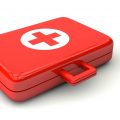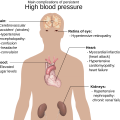Table of Contents
Benefits of Gingko Biloba
Ginkgo has components which improve blood flow and decrease inflammation. Ginkgo biloba also acts as an antioxidant and protects the cells from damage. Presently, ginkgo is possibly best known for its potential to improve memory. It is also taken to treat all sorts of blood-flow disorders. Aside from all these benefits, ginkgo biloba is also used against mental decline in adults with dementia. Recent research now focuses on standardizing ginkgo extract, which is highly concentrated.
Benefits of Hawthorn
Despite the fact that hawthorn has not been looked into specifically in individuals with high blood pressure, there are some people who think its benefits in treating heart disease may also apply to treating high blood pressure or hypertension. But there isn’t enough research to tell for sure whether hawthorn is effective in decreasing blood pressure.
In one research, hawthorn extract was determined to be effective for hypertension in patients with type 2 diabetes and who were taking prescribed medicines as well.
Patient-participants were given to take 1,200 mg of hawthorn extract every day or placebo for 16 weeks. Those who took hawthorn had reduced blood pressure compared to those who took the placebo. Again, it is highly advisable and recommended that you discuss this with your physician before taking anything on your own.
Benefits of Maitake Mushroom
Maitake mushroom can decrease blood pressure though it may not be equally effective for everyone. Ingesting maitake could make a patient’s blood pressure become too low which is why it should be taken with prescribed medication as well.
Maitake mushroom could raise the blood thinning effects of Coumadin and possibly increase the chances of bleeding. The physician may have to closely monitor the patient’s blood pressure levels upon maitake mushroom intake, and the dosage of warfarin medication should also be monitored because it may need changes upon intake. The proper dose of maitake mushroom hinges on a few factors like the patient’s age, some other conditions, and overall effect on the body. Presently, there isn’t sufficient scientific information to confirm an appropriate range of doses for maitake mushroom.
Remember that products like this may depend on how the body responds, proper dosage is also very important. Remember that it is imperative that you talk to your healthcare provider before taking anything outside of what is prescribed to you.
Benefits of Olive Leaf Extract
The ancient Egyptians used extracts from the olive leaf for purposes of curing and other medicinal purposes. Nowadays researchers confirm the health benefits of the olive leaf and how it serves in many ways. One of these benefits includes its usefulness to fight against heart disease, high cholesterol and as an active supplement to lower high blood pressure. Scientist has recently discovered the awesome ability of the potent olive leaf to lessen blood pressure and cholesterol.
Benefits of Reishi Mushroom
Careful studies have shown that extracts from the reishi mushroom can lessen high blood pressure to a significant degree. This was proven effective even in patients who did not respond to conventional antihypertensive drugs. Studies conducted on animals revealed that reishi mushroom extract lowers blood pressure through a central inhibition of nerve activity; however it typically doesn’t slow down the heart rate or induce a sedative effect. Reishi mushroom extract also has a mild to moderate effect on lowering platelet production, which could further aid in decreasing the risk of cardiovascular disease.






 I love to write medical education books. My books are written for everyone in an easy to read and understandable style.
I love to write medical education books. My books are written for everyone in an easy to read and understandable style.